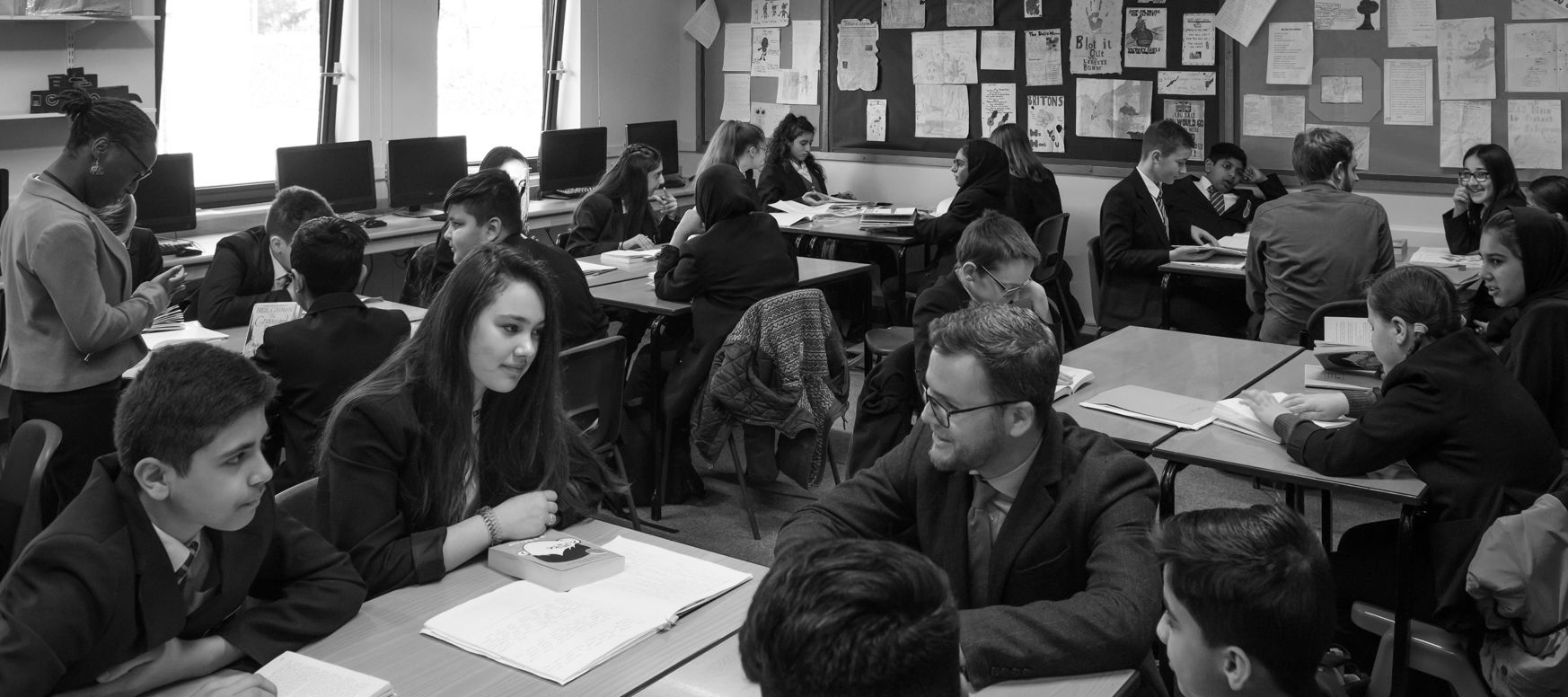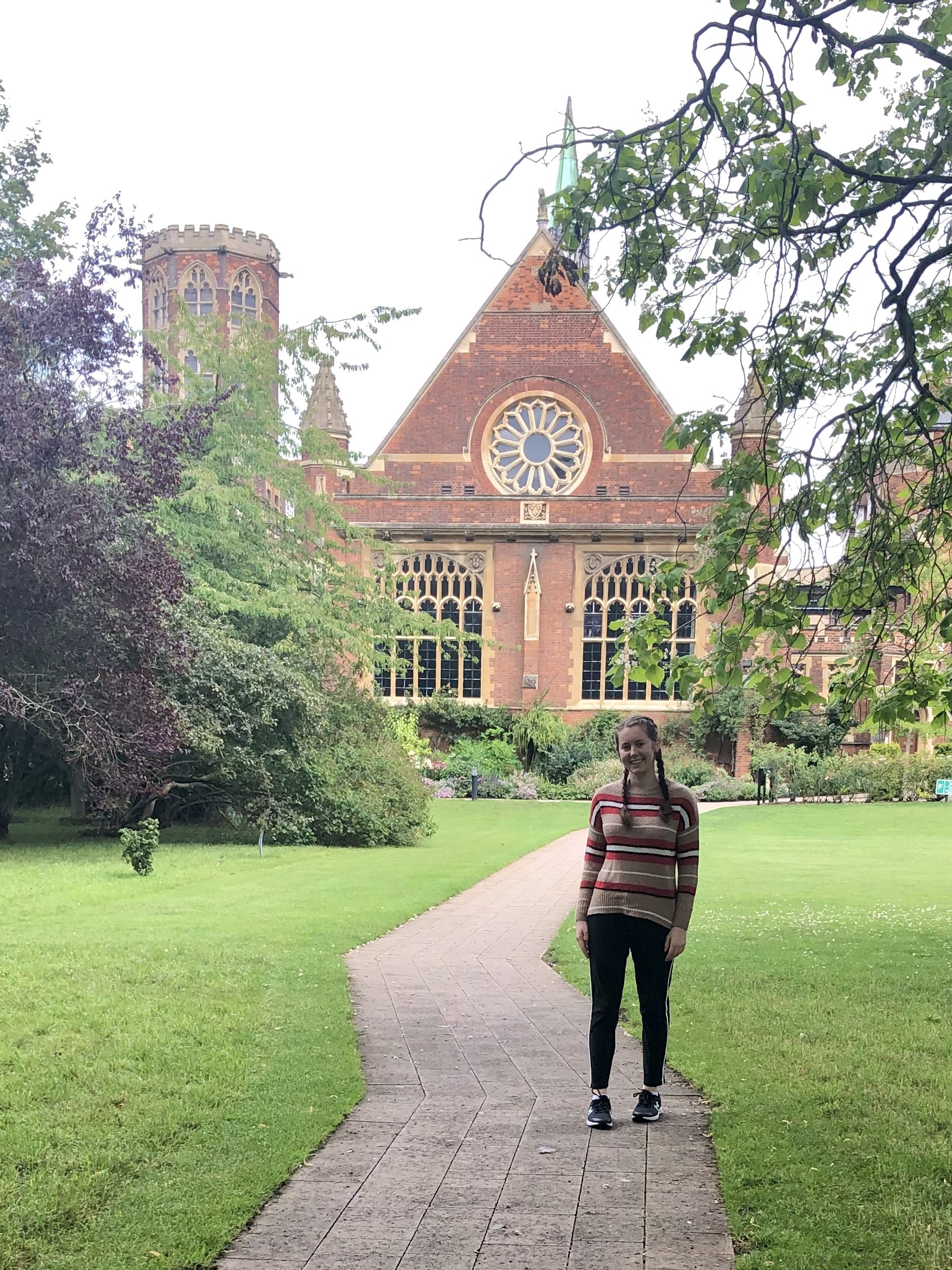Cambridge trainee teachers in their own words
Emily Williams

This article is one of a series of interviews with Faculty PGCE alumni about their experiences as trainee teachers at Cambridge and their views on recently-proposed Government reforms which, if implemented, could lead to the University withdrawing from initial teacher education. Emily Williams completed the General Primary PGCE this year and has just started her first job at Histon and Impington Park Primary School – a Cambridge partner school and part of the Histon and Impington Brook School Teaching School Hub.
I was really lucky to have lots of good teachers when I was at school
I grew up in South Wales and attended a large state comprehensive. It was my good fortune to have a lot of inspiring teachers who really motivated me to achieve my very best. Those early experiences showed me what a positive impact teachers can have on children, and ultimately influenced my decision to study education.
My undergraduate degree was also at Cambridge, in Education, Psychology and Learning. As well as confirming a long-standing desire to be a primary teacher, it opened my eyes to the value of research-informed teacher training. When I then decided to train as a primary school teacher, a university-based PGCE programme therefore made perfect sense. I decided to stay at Cambridge because the course here is so strong at integrating educational theory into classroom practice, so that the best research has direct benefits for children’s learning and development in school.

From day one, the personalised nature of the course really shone through.
The Primary team make it their priority to understand every trainee’s learning journey before enrolment and then set about supporting the professional development of each, by building on personal strengths while providing individual support in areas where we may feel less confident. They made it clear that “no question is a silly question” and they were only ever an email away. This personal attention was, for me, what made the training year such fantastic preparation for teaching my own class.
I came away with a really nuanced understanding of key ideas in education that I then took into my placements.
One of the most valuable features of the PGCE is the access you have to the latest research
Throughout the course, academics from the Faculty lecture on current research that either has implications for the classroom, or could benefit children in other ways. We met leading academics in fields such as dialogic learning, multimodal literacies and inclusive learning environments. I came away with a really nuanced understanding of key ideas in education that I then took into my placements, where I was able to explore how they can actually be applied in a school environment.
Trainee collaboration underpins the course. Even though we trained at the height of the pandemic, we had regular professional study group calls after lectures, where we shared ideas and experiences as a group. I found that these sessions provided a really important opportunity to reflect critically on what I was doing as a teacher and how I might adapt my practice.
The connection between the Faculty and its partnership schools is extremely important in sustaining trainee development.
The primary team have close relationships with placement schools all over the East of England and in each of my own placement schools there were staff who had trained at Cambridge. Many teachers had become mentors with the Faculty as well, and told me about the rigorous training and advice they had received from the PGCE team so they could mentor other trainees. The Market Review proposals will limit the number of placement schools overall and create a top-down system of mentor management which threaten those relationships. This is a big concern because it was pretty obvious that this was what made the placements so effective – not to mention enjoyable and motivating for trainees like me!

Emily at Homerton College
Emily at Homerton College
If I hadn’t been able to explore different ideas in the PGCE as I did, I’m convinced that my own practice would have been worse off.
What I came to realise more and more on the course was that, while teaching certainly requires a lot of thinking on your feet, the ability to absorb and implement evidence, and to reflect on your own practice after you’ve done it, is also crucial.
I’m deeply concerned about the proposed reduction in Faculty-based teaching time, which was central in helping me to draw the connections between research theory and teaching practice. Because the ITT Market Review essentially proposes a single curriculum for all new teachers, it’s also difficult to see how it could prepare trainees to reflect, critically assess evidence and their own experience, or innovate in their own schools.
I would urge the Government not to rush into a decision about this; they need to work closely with institutions who are already providing incredible teacher training.
Future generations will pay the price if the Market Review proposals are not reconsidered
Given the overwhelmingly negative response from the sector – and with Cambridge and Oxford considering withdrawing their PGCE courses – it seems obvious the reforms would undermine the supply of outstanding teachers. We would be losing teachers who are motivated, know how to strive for continued professional growth, and are ready to help children flourish. That can only be bad for future generations. I would urge the Government not to rush into a decision about this; they need to work closely with institutions who are already providing incredible teacher training. That takes time. It’s also crucial that trainees still have different options available so that they can pick the route into teaching that suits them.
The withdrawal of university-based PGCEs would, of course, also be devastating for children – after all they are the ones who stand to benefit most from ambitious, reflective and forward-thinking teachers. Every child has different experiences, different strengths, and different things with which they struggle. If we want teachers to support children with this in mind, making them conform to a single training model, which assumes there is only one way to do the job, is surely a mistake.
